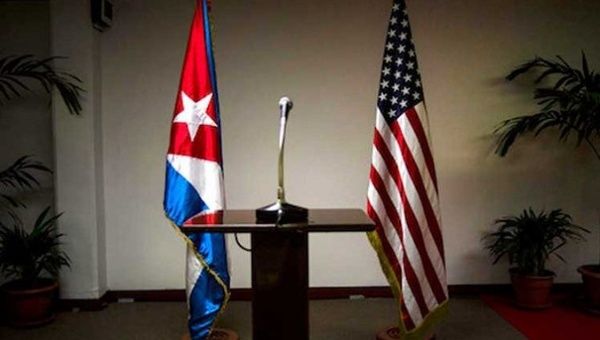
An opportunity for the U.S. to engage with Cuba
(This opinion piece first appeared in the Fort Lauderdale Sun Sentinel.)
Policy towards Cuba was almost completely out of the headlines until two recent Administration actions: the exclusion of Cuba from the Summit of the Americas, which brought criticism from much of the continent, and the announcement of several modest yet positive steps to reverse some of the draconian measures taken by Trump against the island.
The first of these actions was openly hostile, and the second appears to be primarily–if not entirely–a move to salvage at least some political support among the many Cuban Americans, and their families on the island, who will benefit from the welcome relaxation of the Trumpian restrictions on travel and remittances, as well as changes to facilitate legal and safe emigration to the US.
Despite the likely limited intention of these latter measures, it is arguable that they could unwittingly facilitate further steps to revive the Obama-Biden policy of engagement.
In fact, a letter that is now circulating in Congress, signed by 24 representatives, recommends precisely such a realistic possibility of more politically “safe” engagement, by way of collaboration on public health issues.
The letter asks the administration to take executive action to facilitate “engaging with Cuba on issues of global health…. with a particular focus on ensuring that U.S. sanctions do not impede…. efforts by Cuba to share COVID-19 vaccines and related technology and medical support with low-income countries” as well as know-how in successful health collaboration in such countries.
To buttress its proposals, the letter convincingly cites Cuba’s “tremendous progress” in becoming the country with the “fourth highest rate of vaccination worldwide,” relying on five vaccines that “experts believe…hold enormous potential for other low-income countries” because of their ease and relatively low cost of manufacture, and their reduced need for strict refrigeration regimes than the two most widely used vaccines in the US demand.
Moreover, the letter also highlights that “Cuba has committed to manufacture and make available and distribute 200 million doses of COVID-19 vaccines at significantly reduced cost…. including technology transfers for local vaccine production where possible,” as well as medical experts to help “build capacity for vaccine distribution where needed.” In this context, it is worth remembering that our two countries collaborated successfully in combating the Ebola virus in west Africa very recently. But the embargo now makes it nearly impossible for the US to effectively provide many of the inputs and supplies that Cuba would need for such a massive undertaking.
There would surely be political obstacles to such a move, but they are far from insurmountable. The needed steps are possible through executive action, which means no difficult congressional approval or violation of embargo rules—a policy that most agree is a useless relic of the Cold War. Most importantly, the public health nature of such a collaboration would make it relatively “safe” politically, except among the diehard opponents of engagement with the island, who obstinately prefer to stay in that Cold War.
One can only hope the Biden administration would heed the message of this Cuban American and undertake its implementation.

